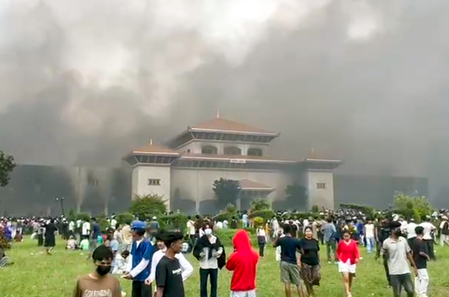New Delhi, Sep 14 (IANS) The violent upheaval in Nepal has brought “Gen Z” into sharp focus — a restless force of unbridled energy, easily swayed and dangerously potent in the wrong hands.
This generation, shaped by the digital revolution, thrives in an illusory online world. Outwardly sociable, Gen Z hides beneath a surface of dissonance where cutthroat competition and performative lives dominate. In Nepal, this group became the face of destruction — burning down Parliament, the Supreme Court, and the Executive — not in pursuit of reform, but as participants in chaos fueled by half-baked ideas.
Unlike student-led uprisings in Bangladesh or Sri Lanka, which toppled regimes, Nepal’s turmoil was less revolution and more implosion, powered by gullible youth unable to distinguish between corrupt individuals and the institutions they serve. The very generation that should have built the nation ended up dismantling its democratic pillars.
In democracies, protest is essential — but the ballot box is the most powerful weapon. India provides examples: Indira Gandhi was voted out in 1977, and the Congress-led UPA was ousted in 2014. Even during volatile episodes — the farmers’ protest of 2020–21 and the anti-CAA demonstrations in 2019–20 — restraint and tactical handling prevented wider collapse.
In Nepal, however, missteps like the police firing on youths during KP Sharma Oli’s tenure sparked fury that spiraled out of control. By September 8–10, the country witnessed some of its darkest days. Protesters stormed prisons, looted police stations, and wielded weapons, while claiming their movement was “peaceful.”
Who instigated this destruction may remain unclear, but the consequences are undeniable. Social media’s ability to create and weaponize cults of thought has been laid bare. With no bombs, no missiles, no tanks — just mass emotion manipulated by twisted narratives — nations can be brought to their knees.
Nepal’s Gen Z may believe they ousted a corrupt regime, but the cost is staggering. Their actions have left the country scarred and exposed how fragile democracies can be when manipulated through the virtual echo chambers of the digital age.
This is the alarm the world must heed: in the 21st century, weaponized thought can be as destructive as any arsenal of war.
With inputs from IANS

